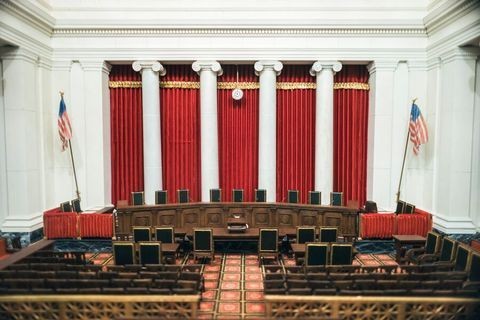Retail and Consumer Products
Strategic legal and business advice for every facet of the retail ecosystem, built on the backbone of our regulatory prowess.
While the ability for a consumer to complete a purchase transaction has never been simpler, the ecosystem responsible for curating the customer experience and delivering product has never been more complex. As a result, members of the retail ecosystem operate at a dizzying speed, with a constant focus on the future. As lawyers and business advisors to this industry, we can only be effective if we embrace this pace and meet our clients’ needs head-on, in real time.
Built on the backbone of our nationally renowned regulatory group, Crowell & Moring’s Retail and Consumer Products Law Group understands the full scope of challenges and opportunities presented to retailers, consumer products companies, and brand owners. Our clients depend on us to provide legal guidance that meets their strategic objectives. This business-focused approach is woven into the fabric of our group and enables us to act quickly, be decisive, and deliver practical, actionable advice.
Need legal insights now? Check out our Retail and Consumer Products Law Blog or contact us today.
Our effectiveness is demonstrated by our clients’ decisions to call upon us, time and again, to help them navigate the complex legal and regulatory regimes, both domestically and internationally, applicable to the design and promotion of products and services, and to assist them in taking innovative and proactive measures to protect their businesses from the array of challenges before them.
— Cheri Falvey, Partner
Contacts
Insights
Client Alert | 2 min read | 02.23.26
NYC’s Mayor Mamdani Joins the Wave of Local Consumer Protection Enforcement
While state attorneys general have traditionally led consumer protection enforcement, local governments are increasingly deploying their own powers to prosecute high-stakes affirmative litigation. The results speak for themselves: Los Angeles and Chicago have secured multi-million-dollar judgments and settlements in consumer deception cases over the past decade.
Client Alert | 1 min read | 02.23.26
SCOTUS Tariff Decision: Implications for Retail and E-Commerce
Client Alert | 2 min read | 01.29.26
California AG Launches “Surveillance Pricing” Investigation – Action Required
Insights
“IP and Other Regulatory Issues,” LM&A Interactive Online Live (Institute for Mergers, Acquisitions and Alliances)
|12.05.24
Raising the Bar: New York Expands Consumer Protection Law with FAIR Business Practices Act
|01.08.26
Crowell & Moring’s Retail & Consumer Products Law Observer
Beyond the Checkout: Retail’s 2026 Legal Minefield
|01.07.26
Crowell & Moring’s Retail & Consumer Products Law Observer
FTC Updates (December 22 – 26, 2025)
|01.06.26
Crowell & Moring’s Retail & Consumer Products Law Observer
FTC Updates (December 15–19, 2025)
|01.05.26
Crowell & Moring’s Retail & Consumer Products Law Observer
FTC Updates (December 8 – 12, 2025)
|12.22.25
Crowell & Moring’s Retail & Consumer Products Law Observer
Register Now! Recall Execution Bootcamp
|12.17.25
Crowell & Moring’s Retail & Consumer Products Law Observer
Speaking Engagement Spotlight: 2026 ICPHSO Annual Meeting and Training Symposium
|12.17.25
Crowell & Moring’s Retail & Consumer Products Law Observer
Updates November 24 – December 5, 2025
|12.17.25
Crowell & Moring’s Retail & Consumer Products Law Observer
FTC Updates November 17 – 21, 2025
|12.01.25
Crowell & Moring’s Retail & Consumer Products Law Observer
Professionals
Insights
Client Alert | 2 min read | 02.23.26
NYC’s Mayor Mamdani Joins the Wave of Local Consumer Protection Enforcement
While state attorneys general have traditionally led consumer protection enforcement, local governments are increasingly deploying their own powers to prosecute high-stakes affirmative litigation. The results speak for themselves: Los Angeles and Chicago have secured multi-million-dollar judgments and settlements in consumer deception cases over the past decade.
Client Alert | 1 min read | 02.23.26
SCOTUS Tariff Decision: Implications for Retail and E-Commerce
Client Alert | 2 min read | 01.29.26
California AG Launches “Surveillance Pricing” Investigation – Action Required
Contacts
Insights
Client Alert | 2 min read | 02.23.26
NYC’s Mayor Mamdani Joins the Wave of Local Consumer Protection Enforcement
While state attorneys general have traditionally led consumer protection enforcement, local governments are increasingly deploying their own powers to prosecute high-stakes affirmative litigation. The results speak for themselves: Los Angeles and Chicago have secured multi-million-dollar judgments and settlements in consumer deception cases over the past decade.
Client Alert | 1 min read | 02.23.26
SCOTUS Tariff Decision: Implications for Retail and E-Commerce
Client Alert | 2 min read | 01.29.26
California AG Launches “Surveillance Pricing” Investigation – Action Required






















